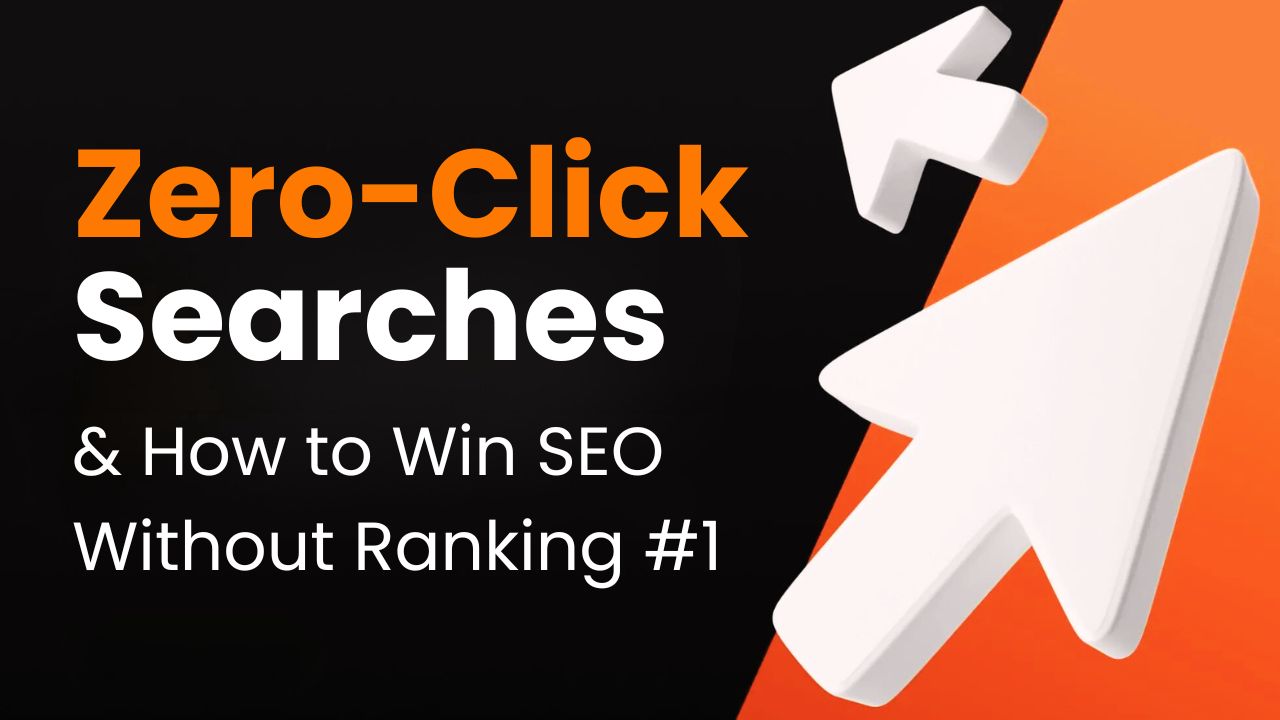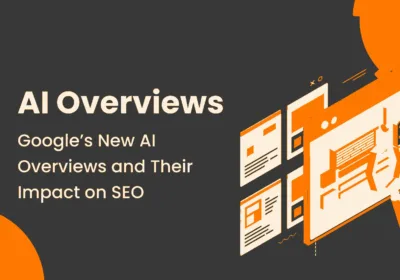Zero-Click Searches Rising: How to Win SEO Without Ranking #1

In 2025, the SEO landscape is undergoing a seismic shift. With zero-click searches dominating Google’s search engine results pages (SERPs), users are increasingly getting answers directly from features like Featured Snippets, People Also Ask (PAA), Knowledge Panels, and AI Overviews without ever clicking through to a website. According to a 2024 study by SparkToro, nearly two-thirds of Google searches in the U.S. result in zero clicks, with only 360 out of 1,000 searches leading to non-Google-owned sites. This trend, driven by AI and evolving user behavior, challenges traditional SEO strategies but opens new opportunities for visibility through Generative Engine Optimization (GEO) and adherence to Google’s E-E-A-T framework (Experience, Expertise, Authoritativeness, Trustworthiness).
This comprehensive guide explores how to optimize for zero-click searches, rank in Google’s PAA section, and leverage GEO strategies to boost your brand’s visibility, even if you’re not ranking #1. Written by Gyan Singh, an SEO strategist with over a decade of experience helping brands navigate algorithm changes, this article is designed to provide actionable insights backed by data and industry expertise.
What Are Zero-Click Searches?
Zero-click searches occur when users find the information they need directly on the SERP without clicking through to a website. These searches are powered by Google’s efforts to provide instant, reliable answers through features like:
- Featured Snippets: Summarized content from a webpage displayed at the top of the SERP.
- People Also Ask (PAA): A box of related questions with expandable answers.
- Knowledge Panels: Informational boxes about entities like businesses or people.
- AI Overviews: AI-generated summaries pulling from multiple sources.
- Local Packs: Business listings for location-based queries.
- Direct Answers: Simple responses to queries like weather or calculations.
This shift is driven by Google’s focus on user experience and the rise of AI-driven search technologies, such as Google’s Search Generative Experience (SGE). As a result, traditional metrics like click-through rates (CTR) are less reliable, and SEO professionals must pivot toward visibility and brand authority.
Why Are Zero-Click Searches Rising?
The rise of zero-click searches is tied to several factors:
- AI-Powered Search: Google’s SGE and other generative engines synthesize information from multiple sources, delivering concise answers directly on the SERP.
- User Behavior: Modern users, especially younger generations, prioritize speed and convenience, often seeking quick answers via mobile or voice search.
- Mobile and Voice Search: With 21% of users regularly using voice search and 8.4 billion voice assistants globally, queries are increasingly conversational and intent-driven.
- SERP Feature Expansion: Features like PAA and AI Overviews dominate SERPs, reducing the need for clicks. A 2025 analysis by Workshop Digital found that search features appeared in nearly 1 million SERP instances across 160,000 keywords.
- Google’s E-E-A-T Emphasis: Google prioritizes content that demonstrates Experience, Expertise, Authoritativeness, and Trustworthiness, especially for zero-click features, to ensure reliable information.
How to Optimize for Zero-Click Searches with GEO
Generative Engine Optimization (GEO) is a strategy tailored for AI-driven search engines, focusing on optimizing content for visibility in generative responses rather than traditional SERP rankings. Unlike traditional SEO, which emphasizes keywords and backlinks, GEO prioritizes contextual relevance, conversational content, and E-E-A-T principles. Here’s how to win at SEO in a zero-click world:
1. Target Google’s People Also Ask (PAA) Section
The PAA section is a goldmine for zero-click visibility. It displays related questions that align with user intent, making it a prime target for SEO and GEO.
- Identify PAA Questions: Use tools like Semrush, Ahrefs, or AnswerThePublic to find high-volume, question-based keywords related to your niche. For example, “How to optimize for zero-click searches?” or “What is Generative Engine Optimization?”
- Structure Content for PAA: Create concise, direct answers (50-70 words) to PAA questions within your content. Use Q&A formats, bullet points, or subheadings to make answers scannable. For instance: What is a zero-click search?
A zero-click search occurs when a user gets an answer directly on Google’s SERP via features like Featured Snippets or PAA, without visiting a website. - Use Trigger Words: Incorporate words like “how,” “why,” “what,” “best,” or “guide” to align with question-based queries.
- Optimize for Intent: Focus on informational intent (e.g., “how to,” “what is”) rather than transactional intent, as PAA typically serves users seeking quick answers.
2. Leverage Structured Data and Schema Markup
Structured data helps search engines understand your content, increasing the likelihood of appearing in rich results like Featured Snippets or PAA.
- Implement FAQ Schema: Add FAQPage schema to your pages to signal question-answer content.
- Use HowTo and Article Schema: For guides or tutorials, apply HowTo schema to outline steps clearly. Article schema can enhance blog visibility.
- Optimize for Rich Snippets: Include structured data for reviews, events, or products to boost visibility in Knowledge Panels or Local Packs.
3. Create High-Quality, E-E-A-T-Compliant Content
Google’s E-E-A-T framework is critical for zero-click features, as it ensures content is credible and trustworthy.
- Showcase Experience: Highlight first-hand knowledge through case studies, client testimonials, or real-world examples. For instance, share a success story of how your SEO strategy increased PAA visibility by 30%.
- Demonstrate Expertise: Publish well-researched content backed by data, expert quotes, or citations from reputable sources (e.g., Google’s Search Quality Rater Guidelines).
- Build Authoritativeness: Include detailed author bios with credentials, awards, or industry recognition. Link to your LinkedIn or other professional profiles.
- Ensure Trustworthiness: Use SSL certificates, display contact information, and create an “About Us” page to signal reliability. Avoid AI-generated content without human review to maintain authenticity.
4. Optimize for Featured Snippets
Featured Snippets are the cornerstone of zero-click searches, appearing above organic results. To capture them:
- Answer Questions Directly: Place a concise answer (40-60 words) immediately after a question-based subheading (e.g., “Why are zero-click searches important?”).
- Use Lists and Tables: Format answers as bullet points, numbered lists, or tables for easy extraction. For example:Top Zero-Click Features
- Featured Snippets: Summarized webpage content.
- PAA: Related questions with answers.
- AI Overviews: AI-generated summaries.
- Target Position Zero: Even if you’re not ranking #1, well-optimized content can secure a Featured Snippet. A 2025 Backlinko study found that pages ranking #2-#5 often win snippets with clear, structured answers.
5. Embrace Conversational and Voice Search
With voice search growing, GEO strategies must account for natural language queries.
- Use Conversational Tone: Write content that mimics how users speak, e.g., “Hey Google, how do I optimize for zero-click searches?”
- Answer Long-Tail Queries: Target long-tail keywords like “best strategies for zero-click SEO in 2025” to align with voice search patterns.
- Optimize for Mobile: Ensure your site is mobile-friendly, as most zero-click searches occur on mobile devices. Fast loading times and responsive design are critical.
6. Incorporate GEO-Specific Tactics
GEO focuses on optimizing for AI-driven engines, which prioritize relevance and credibility. Key tactics include:
- Cite Authoritative Sources: Include citations, quotations, or statistics from trusted sources to boost credibility. A 2023 GEO study found that adding citations improved visibility by 30-40% in generative engines.
- Add Statistics: Use data-driven insights to enhance authority, especially for factual or law-related queries. For example, “Zero-click searches account for 65% of Google searches in 2024.”
- Use Persuasive Language: Craft content with authoritative tone and technical terms to appeal to AI algorithms.
- Avoid Keyword Stuffing: Unlike traditional SEO, GEO penalizes over-optimized content. Focus on semantic richness and user intent.
7. Enhance Brand Visibility Across Platforms
Zero-click searches reduce direct traffic, so building brand awareness is crucial.
- Optimize Google Business Profile: For local businesses, ensure your Google My Business listing is complete with accurate details, reviews, and photos to appear in Local Packs.
- Engage on Social Media: Maintain active profiles on LinkedIn, X, or YouTube to reinforce brand authority. Share snippets of expertise to build a following.
- Monitor Brand Mentions: Track brand mentions and search volume using tools like Google Alerts to gauge visibility.
8. Track and Measure Success
Traditional metrics like organic traffic are less relevant in a zero-click world. Focus on:
- SERP Visibility: Use tools like Semrush or Ahrefs to track appearances in PAA, Featured Snippets, or AI Overviews.
- Brand Awareness: Monitor brand search volume and social engagement (likes, shares, comments).
- Conversions: Measure conversions from qualified traffic, as users clicking through from zero-click features are often high-intent.
Common Pitfalls to Avoid
- Ignoring E-E-A-T: Content lacking expertise or trustworthiness will struggle to appear in zero-click features. Always include author bios and credible sources.
- Over-Reliance on AI Content: AI-generated content without human review risks being flagged as low-quality.
- Neglecting Technical SEO: Slow-loading pages or poor mobile optimization can hurt your chances of ranking in zero-click features.
- Focusing Solely on Traffic: Zero-click searches prioritize visibility over clicks. Shift your mindset to brand authority and long-term trust.
FAQs: People Also Ask
What is Generative Engine Optimization (GEO)?
GEO is the process of optimizing content for AI-driven search engines, focusing on contextual relevance, conversational queries, and E-E-A-T principles to increase visibility in generative responses like AI Overviews.
How do zero-click searches impact SEO?
Zero-click searches reduce website traffic but enhance visibility through SERP features. Optimizing for PAA, Featured Snippets, and AI Overviews can boost brand authority and attract qualified leads.
Why is E-E-A-T important for zero-click searches?
Google’s E-E-A-T framework ensures content is credible and trustworthy, a key requirement for appearing in zero-click features like PAA or Featured Snippets.
How can I rank in Google’s PAA section?
To rank in PAA, create concise, question-based content with Q&A formats, use FAQ schema, and target high-volume, informational keywords aligned with user intent.
Conclusion
Zero-click searches are reshaping SEO, but they’re not the end of organic growth. By embracing Generative Engine Optimization (GEO) and adhering to Google’s E-E-A-T framework, you can win visibility in PAA, Featured Snippets, and AI Overviews without relying on #1 rankings. Focus on creating high-quality, user-centric content, leveraging structured data, and building brand authority across platforms. As search evolves, adaptability and credibility will be your greatest assets.
Ready to dominate zero-click searches? Start by auditing your content for E-E-A-T compliance and optimizing for PAA with the strategies above. For expert guidance, contact DigiMarkLand, where we specialize in cutting-edge SEO and GEO solutions.
About the Author: Gyan Singh is an SEO strategist with over 15 years of experience in digital marketing. Specializing in algorithm updates and AI-driven search trends, Gyan Singh has helped brands achieve top SERP visibility through innovative SEO and GEO strategies. Connect with Gyan Singh on LinkedIn.



Leave a Reply